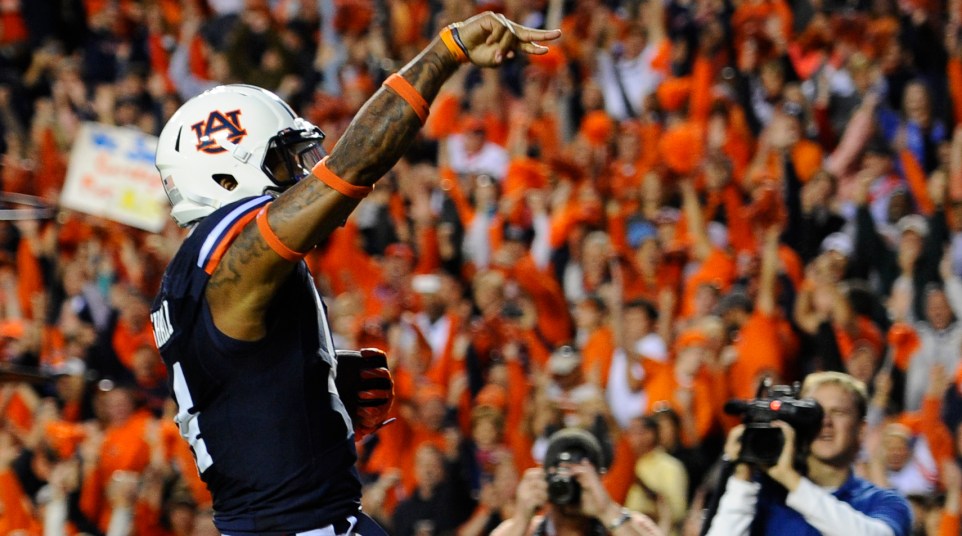Nick Marshall: The forgotten star
An improved completion percentage.
That was the goal for Auburn quarterback Nick Marshall during the 2014 season. Marshall is the first second-year signal caller on the Plains since Brandon Cox led the Tigers offense in 2006-07.
Marshall met all of the expectations in the spring and fall, with the success being attributed to experience.
“Having been in the offense, I know the progression,” Marshall said in an August interview with AL.com. “I don’t have to do much thinking; I just play ball.”
Then his season got off to an underwhelming start and the questions began to surface.
Marshall missed the first half of the season-opener against Arkansas due to an offseason citation for marijuana possession. All backup Jeremy Johnson did was complete 12 of 16 passes for 243 yards and two scores.
Johnson added a dimension we hadn’t yet seen on the Plains: a legitimate threat passing the ball.
Head coach Gus Malzahn stood squarely behind Marshall as the guy, despite subpar games against San Jose State, Kansas State and Louisiana Tech.
Marshall quieted the critics and reminded everyone just how good of a quarterback he is in the Tigers’ 34-point win over then-No. 15 LSU last weekend.
Fourteen completions in 22 attempts for 207 yards and two touchdowns. Another 100-yard rushing outing with two touchdowns.
That was Marshall’s stat line in the most dominant performance Auburn has put forth under Malzahn. We finally saw glimpses of the improvement coaches talked about all offseason, and we saw how unstoppable the Tigers are when Marshall can run the ball.
Marshall had four games last season in which he threw for less than 100 yards, but Auburn — and Marshall — were in a much different position.
Malzahn had no track record for knowing what he would get out of his JUCO transfer quarterback. Marshall did not arrive on campus until the fall, and each game was a discovery of what Marshall could do within the offense.
Entering 2014, however, it was all about Marshall’s development as a passer and Malzahn’s desire to have a more balanced offense. Auburn coaches have said repeatedly — as the season has progressed — that passing efficiency is the key stat, not necessarily a high volume of completions or passing yards.
Marshall has a passer efficiency rating 151.26, which ranks second in the SEC. He’s completed just 57 percent of his passes, but his impact goes beyond his arm.
Auburn has won its last 15 games when the quarterback rushes for 100 yards or more. Seven of those have come with Marshall under center. Marshall is the third quarterback in Auburn history to amass 2,000 passing yards and 1,000 rushing yards.
He’s unfazed on college football’s biggest stage.
Marshall led the Tigers from worst-to-first in 2013 and has Auburn right back where it ended last season at No. 2. This Saturday’s game at Mississippi State will his 19th start as the Tigers quarterback. It will be his 10th start against a top-25 team, his sixth against a top-10 team and his fourth against a top-5 opponent.
“When it comes down to crunch time, when it comes down to big games, he’s going to perform,” tight end C.J. Uzomah said. “He’s going to leave his all on the field and give his best effort and give his best game.”
Marshall’s 7-2 against the top 25, 3-2 against the top 10 and 2-1 against the top 5.
Give me that guy. There are other great quarterbacks around the SEC that will put up eye-popping numbers on any given Saturday. Prescott, Hill, Wallace, Sims.
But a star is the guy who will win it when there’s seemingly no time left to win it. And who will do so on the biggest stages.
And that describes Nick Marshall.

